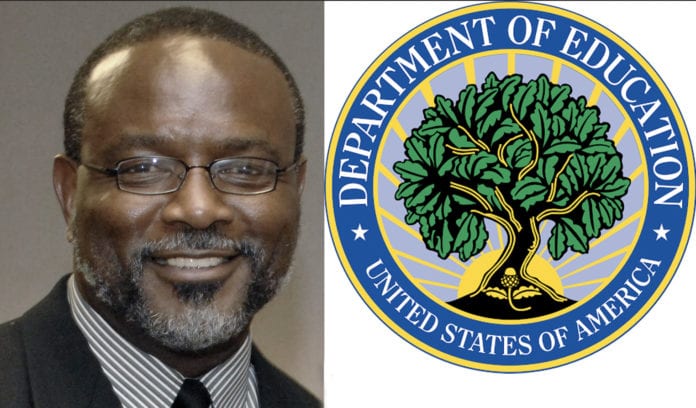by Curtis Weathers —
Words cannot describe the exhilaration I’m experiencing, regarding the results of our recent elections, so I won’t even try.
Suffice to say, a significant portion of our nation’s citizenry is breathing a collective sigh of relief. It appears for now that our democracy will hold together despite the unprecedented stress applied to its many guardrails over the last few years, and the past several weeks and days.
In a previous column, I threw a considerable amount of shade in the direction of Secretary of Education Betsy Devos.
The criticism, I believe, is well deserved.
My issues with Secretary Devos at that time centered primarily on her lack of leadership and support in guiding our education community through a coronavirus pandemic that continues to wreak havoc throughout the nation.
I’m still awed by the fact that she was not a member of the President’s Coronavirus Task Force. I have other issues with her leadership, as well.
For example, during her tenure, she has worked diligently to reduce the Department of Education’s footprint by proposing cuts to public school funding and narrowing the department’s enforcement role of federal education laws and civil rights.
Now that we are about to have a new president, we can look forward to new leadership, not only in the White House, but in the U.S. Department of Education as well.
I recognize that for a lot of people, the Secretary of Education is a position or person that rarely crosses their minds. But this person has a lot to do with the laws that govern our school systems and, thus, the quality of education our children receive.
While the Secretary of Education does not make the laws, he or she facilitates dialogue and advises Congress and others charged with writing the various statutes that govern our educational systems.
At the end of this school year, our nation’s federal education law – the Every Student Succeeds Act (ESSA) – is scheduled for reauthorization. ESSA is a federal statute introduced by Tennessee Republican U.S. Sen. Lamar Alexander on April 30, 2015. It was then signed into law by President Barack Obama a few months later, which is proof positive that bipartisanship in Congress was once a real phenomenon.
ESSA is also a reauthorization of the 1965 Elementary and Secondary Education Act, which established the federal government’s expanded role in public education. Its purpose is to ensure that all children in America receive a fair, equitable and high-quality education and close educational achievement gaps.
The law went into full effect during the 2017-2018 school year, and initial funding was authorized through the 2020-2021 school year.
So next year, congress will start the arduous task of updating and revising the laws that govern our nation’s educational institutions. But it looks unlikely that they will meet their self-imposed deadline for reauthorization.
Still, I’m certain this legislation will be addressed sometime during the first 24 months of the Biden administration.
The fact that this is such a significant education bill with more than $25 billion in federal education dollars hanging in the balance, the Secretary of Education (whomever he or she might be) will play a pivotal role in the reauthorization process.
Educational experts and political pundits across a diverse spectrum of interest groups have, over the years, weighed in on the pros and cons of ESSA provisions.
In its current form, I believe the statute was a significant step in the right direction. It was indeed a marked improvement from its predecessor, the No Child Left Behind Act (NCLB).
States and school districts have learned a lot about what truly works regarding school reform, testing and accountability, education equity, school funding, the recruitment and hiring of teachers, serving students with special needs, and many more of the issues addressed in ESSA’s provisions.
I’m confident that, based on what we’ve learned, significant improvements can be made.
But we need strong, decisive leadership in the U.S. Department of Education to help put the pieces together and oversee a robust public discussion and implementation.
The new Secretary of Education must be someone who understands public education and is willing to listen and surround themselves with competent, like-minded people. It must be a high-profile individual, who has the respect of Congress and will command the attention of the American people.
I am anxious for the discussions to begin. A lot is at stake.
While I’m excited about what lies ahead, given the current state of our democracy, I do worry whether we have the will and/or capacity at this time to rethink the contours of public education in America.
With the right people at the helm, I think the American people can be presented with a dynamic body of work (ESSA 2.0) that will have a real impact on the education of ALL children in America.
We can get this done.
Stay safe, and keep our schools in your prayers.
(For more information about Every Student Succeeds Act (ESSA), visit https://www.ed.gov/essa. Follow TSD education columnist Curtis Weathers on Twitter (@curtisweathers); email: [email protected].)




